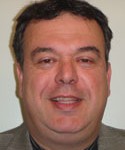Alzheimer’s disease is a progressive neurologic disease of the brain. It leads to the irreversible loss of neurons and the loss of intellectual abilities, including memory and reasoning, which become severe enough to impede social or occupational functioning. Alzheimer’s disease is also known simply as Alzheimer’s, and Senile Dementia of the Alzheimer Type (SDAT).
People who lead active lifestyles are more likely to slow down the progression of Alzheimer’s disease, while active people who are Alzheimer’s free have a lower risk of developing the disease or any kind of dementia, researchers from the University of California reported at the annual meeting of RSNA (the Radiological Society of North America) in November 2012.
Lifestyle factors that help ward off or slow down Alzheimer’s include yard work, gardening, dancing, riding an exercise bike and any type of aerobic exercise.
Aloysius Alzheimer was a German neuropathologist and psychiatrist. He is credited with identifying the first published case of “presenile dementia” in 1906, which Kraepelin later identified as Alzheimer’s disease — naming it after his colleague.
In 1901, while he worked at the city mental asylum in Frankfurt am Main, Germany, Dr. Alzheimer had a 51-year-old patient called Mrs. Auguste Deter. The patient had distinct behavioral symptoms that did not fit any existing diagnoses — she had rapidly failing memory, disorientation, confusion, had trouble expressing her thoughts and was suspicious about her family members and the hospital staff. Her symptoms progressed relentlessly. Dr. Alzheimer wrote that she once said to him, “I have lost myself.”
Along with two Italian doctors, Dr. Alzheimer performed an autopsy. The autopsy revealed that her brain had shrunken dramatically, but there was no evidence of atherosclerosis (thickening and hardening of the walls of the arteries). He used a silver staining technique he had learnt from ex-colleague Franz Nissl that identified amyloid plaques and neurofribrillary tangles in the brain — two hallmarks of the disease.
Doctors say Alzheimer’s disease can sometimes be tricky to diagnose because each patient has unique signs and symptoms. Several of the signs and symptoms present in Alzheimer’s disease also exist in other conditions and diseases.
Alzheimer’s disease is classified into several stages. Some doctors use a seven-stage framework, while others may use a four, five or six-stage one.
A common framework includes:
1. Pre-Dementia Stage.
2. Mild Alzheimer’s Stage.
3. Moderate Alzheimer’s Stage.
4. Severe Alzheimer’s Stage.
The following describes the seven-stage framework:
Stage 1 — No impairment.
Stage 2 — Minimal impairment (very mild cognitive decline).
Stage 3 — Early confusion (mild cognitive decline). Duration is two- to seven years.
Stage 4 — Moderate cognitive decline (mild or early stage Alzheimer’s Disease). Duration is about two years.
Stage 5 — Moderately severe cognitive decline (moderate or mid-stage Alzheimer’s Disease). Duration is about 18 months.
Stage 6 — Severe cognitive decline (moderately severe mid-stage Alzheimer’s Disease). Duration is about two-and-a-half years.
Stage 7 — Very severe cognitive decline (severe or late-stage Alzheimer’s Disease). Duration is one- to- two-and-a-half years.
Individuals don’t usually die from Alzheimer’s; rather their life expectancy is shortened from complications. As patients become less able to look after themselves, any illnesses they develop, such as an infection, are more likely to rapidly get worse.
Caregivers will find it difficult to identify complications because the patient becomes progressively less able to tell if he/she is unwell, uncomfortable or in pain. Pneumonia and pressure ulcers are examples of common complications that may lead to death for people with severe Alzheimer’s disease.
Micha Shalev, MHA, CDP, CDCM, is the owner of Dodge Park Rest Home and The Adult Day Club at Dodge Park located at 101 Randolph Road in Worcester. He is a graduate of the National Council of Certified Dementia Practitioners program, and a well known speaker on Alzheimer’s and Dementia training topics. He can be reached at 508-853-8180 or by e-mail at m.shalev@dodgepark.com or view more information online at www.dodgepark.com













